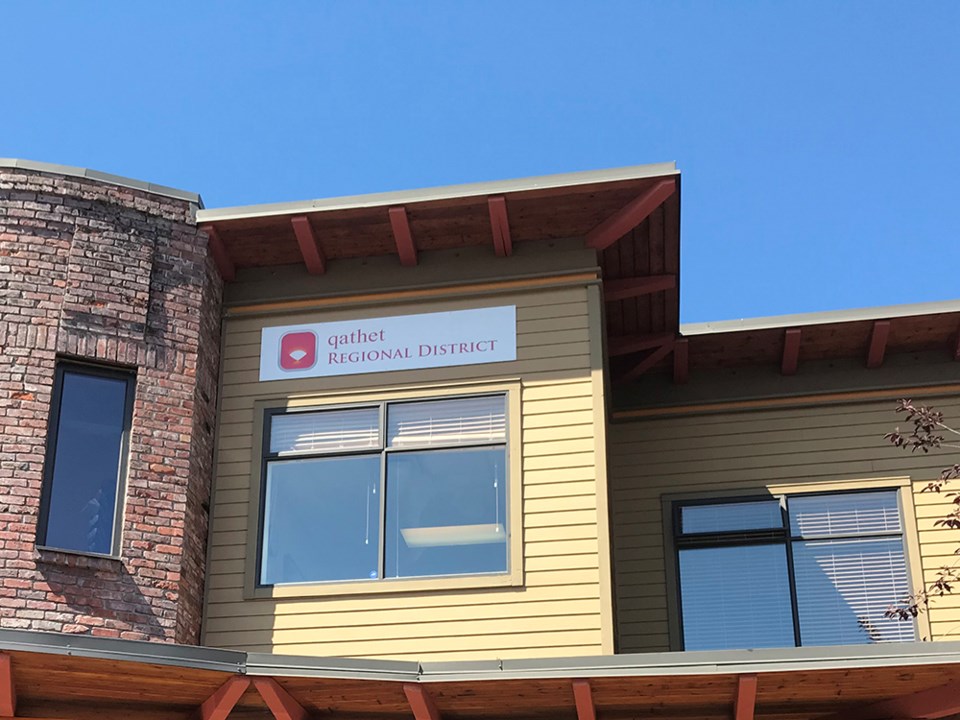qathet Regional District’s (qRD) committee of the whole members held a lengthy discussion about how to resurrect community to community to community (C3) meetings.
For years, qRD, Tla’amin Nation and City of Powell River’s elected representatives and senior staff have met several times a year to discuss matters of mutual interest and concern among the three governments. No meetings have been held since a Tla’amin request that the meetings be held in private, with the public and media not in attendance.
At the qRD committee of the whole meeting on May 3, directors considered a four-part motion to get the meetings back on track. The first was: that the committee recommend the board establish a select committee for the purposes of regional collaboration and reconciliation with all three communities (C3): Tla’amin, the city and qRD electoral areas; and that the committee be opened to all elected representatives of those three communities; and that staff be directed to draft a terms of reference; and that staff enquire about grants from senior level government to support the work of the committee.
Electoral Area B director Mark Gisborne said the C3 meetings have run into challenges and they come down to structure.
“When we talk about C3 we talk about bringing everyone to the table,” said Gisborne. “We can have all elected representatives from the city, Tla’amin Nation and qRD, and then we can direct staff to establish the terms of reference for what works for all parties.”
City director George Doubt said he would like terms of reference that talk about having meetings open to the public, with the exception of an opportunity for a closed meeting, to make sure the meeting is not publicly disclosing anything harmful to the interests of Indigenous people or others.
Electoral Area C director and board chair Clay Brander said he sees C3 as a forum, a more informal get-together of the three governments.
“It’s an opportunity to get the three governments together and have discussions on topics that are familiar to all three groups,” said Brander. “I’m inclined to go with the recommendation that indicates reinstating the C3 forum in a manner that satisfies the First Nation partners.
“It’s a non-decision-making body that’s beneficial to all the governments involved in the relationship and higher levels of government are encouraging us to do this.”
City director and committee chair Cindy Elliott said she was not in favour of the motion because it assumed qRD was taking the lead in structure.
“It’s inappropriate for us to do that,” said Elliott. “C3 is the gathering of the three governments to share information. I’m in favour of getting those C3 meetings back on track. I don’t know how they can proceed to make all parties happy but we need to start talking about it and I don’t support the regional district saying it will structure the committee and invite people to participate.”
Drawing attention
Chief administrative officer Al Radke said he had the opportunity to speak to his colleague at Tla’amin. He said he wanted to draw directors’ attention to the nation’s notion that they want to have private meetings, not in camera meetings.
“Private meetings mean withdrawn from company or observation,” said Radke. “I think it’s because they feel it’s the only way right now to help to control, and for us to help to promote, what’s found in the United Nations Declaration on the Rights of Indigenous People (UNDRIP). That is, it should be free from discrimination of any kind.”
Electoral Area E director Andrew Fall said the C3 will not be able to meet unless all three parties are satisfied.
“We are all behind the concept of reinstating C3,” said Fall. “It would be far better to work through C3 to talk about meeting issues and help try to find that way to satisfy everyone.”
Gisborne proposed an amendment to the motion to include seeking input from Tla’amin and the city, but the motion was defeated.
Elliott then called the question on the main motion, and it, too, was defeated.
The committee then considered a motion that it recommend to the regional board that the C3 forums be reinstated in collaboration with Tla’amin and the city.
Doubt said he heard everyone in the room indicate this is what they want to do.
“I heard everyone around the table say it’s important to reach out to the other parties to have a discussion to begin it,” said Doubt. “My preference would be to find a way with those partners to have open meetings that have the ability to have a closed session.”
The motion carried unanimously.
The committee then passed a motion that it recommends to the board that qRD write a letter to the minister of Indigenous relations and reconciliation and the minister of municipal affairs urging that they amend text in the Community Charter to enable local governments to have private forums with First Nations.
A motion that the committee recommends to the board that the board send a resolution to Union of British Columbia Municipalities asking that the Community Charter be amended to include First Nations as a level of government was withdrawn.



